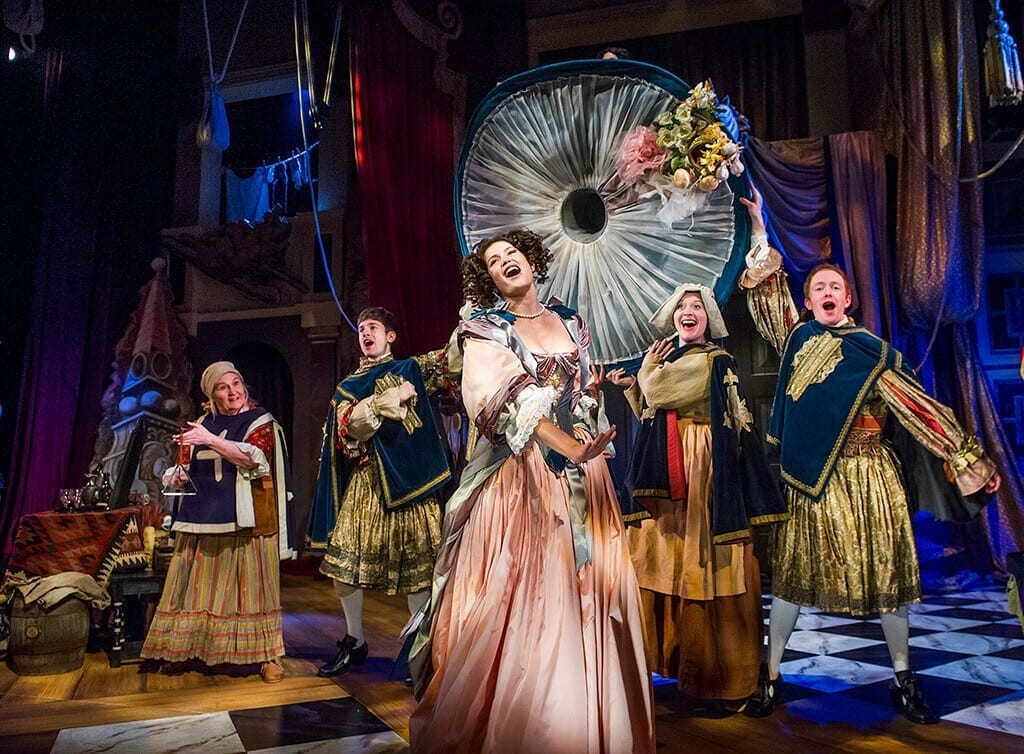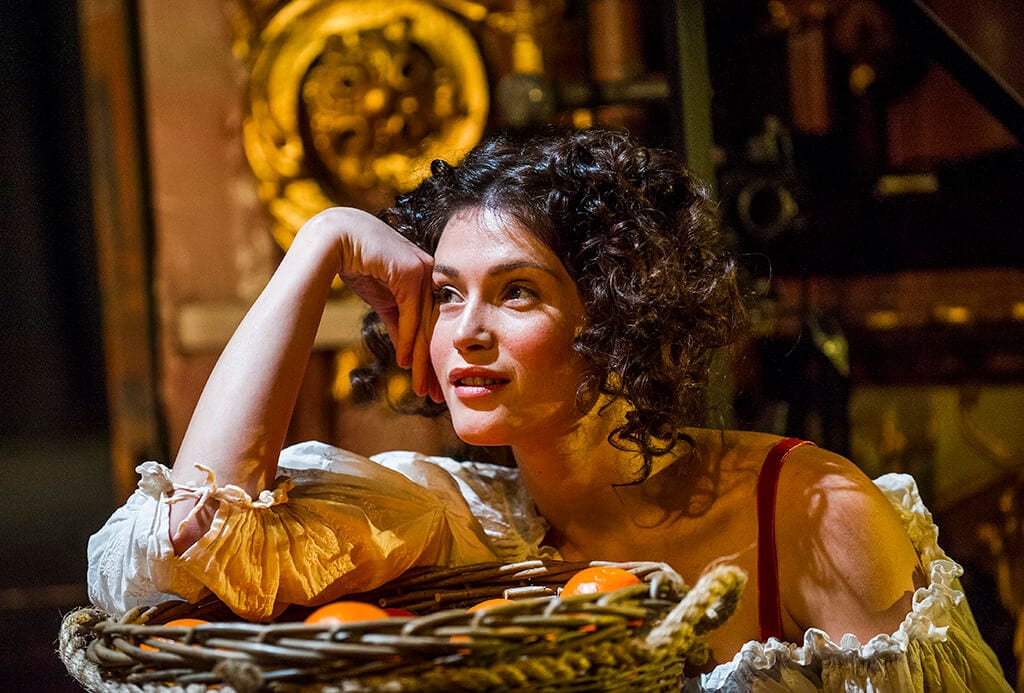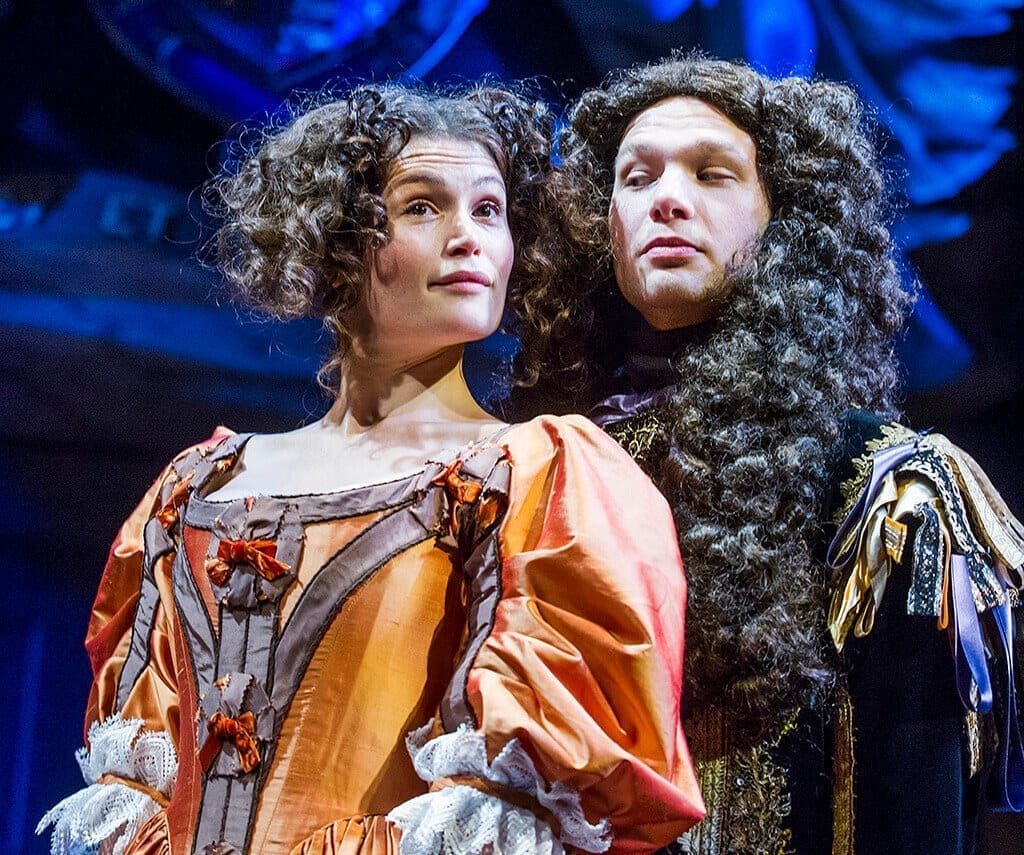Jessica Swale’s play is an enthusiastic tribute to the extraordinary life of comic actress and mistress to King Charles II, Nell Gwynn, and to the controlled chaos of life in a theatre. Her script balances bawdy humour and witty asides to the audience with serious reflection on the place of women in 17th century society.
Swale explores Nell Gwynn’s charmed transition from orange-seller in a playhouse to one of the first female actresses on a British stage where she catches the eye of Charles II and becomes his favourite mistress. Nell negotiates the expectations of both a male-dominated theatre and a royal court with courage and good humour. This play offers upbeat comedy with moments of insight into the complexity of fame and influence.
Gemma Arterton deftly depicts Swale’s feisty Nell Gwynn. She is exuberant and disarming, offering both salacious ditties and moving self-reflection. She is at her best when courageously confronting the expectations of the men around her and wittily challenging the social conventions of the time. Her rapport with King Charles II (David Sturzaker) is delightful and easily conveys the true affection between the two. The greatest joy to watch is Nancy, Michele Dotrice, Gwynn’s dresser and understudy, whose easy humour and impeccable comic timing affords genuine enjoyment. Witty references to current events and relentless innuendo keep the audience constantly laughing.
Swale’s play unfolds within the lavishly designed Drury Lane playhouse, with Arterton emerging from out of the audience. From the start this play draws you into the action with a coy acknowledgement of being watched, topical jokes and sly winks to the audience. The popular spirit of 17th century theatre is alive in this performance reflecting Nell’s assertion that actors should be the voice of the people.
Swale avoids heavy Restoration-era language in favour of a contemporary rhetoric which more accurately conveys the atmosphere of life in the theatre. Occasional anachronisms only heighten the comedy and serve to remind us of just how far ahead of her time Nell’s grand ambitions and assertiveness really are. The cleverly designed set, only lightly adapted to portray Nell’s move from the playhouse to the palace, suggests the continuity between the artifice of acting both in the theatre and at court.
Live music, dancing chorus boys and the appearance of the king’s cocker spaniel all come together to produce a varied and uplifting performance. Interspersed with serious moments Swale’s Nell Gwynn offers pure escapism for an evening and a lot to think over in days to come.



